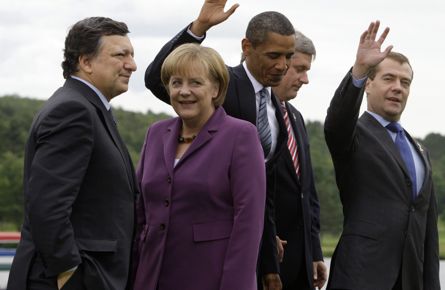Spending and saving: they’re different no matter what the G20 says
No amount of verbiage can make austerity the same as stimulus
Share
 The most interesting factor in these back-to-back G8 and G20 summits is the widely debated tension between the push from Washington to keep pumping up the world economy with government spending and the pull from European capitals to begin reining in deficits.
The most interesting factor in these back-to-back G8 and G20 summits is the widely debated tension between the push from Washington to keep pumping up the world economy with government spending and the pull from European capitals to begin reining in deficits.
This polarization of the economic debate threatens the tenet held most dear by the mandarins who lay the groundwork for summits of this sort: let there be no messy, public disagreements, certainly not on the fundamentals.
And so it’s not surprising that efforts are well underway to manage, massage, and if need be, mangle the summit language to prevent the clear divergence from being evident in the way the G20 leaders talk about their talks here in Toronto.
Listen to José Manuel Barroso, the president of the European Council, bury the division in syllables at his news conference this afternoon. Asked how the leaders can agree to simultaneously keep up stimulus spending and impose restraint, he said this about the way the conversation went when the G8 leaders discussed the matter on Friday in Muskoka:
“Yesterday we started our discussion with economic recovery. On this point all leaders converged on how to recover from the economic crisis. There is no contradiction between gradual growth-friendly differentiated fiscal consolidation and economic growth.”
What is “gradual growth-friendly differentiated fiscal consolidation”? I’m not at all sure. But I’m going to take a guess that few would use this mouthful of mush to describe, say, German Chancellor Angela Merkel’s plan to save $80 billion or British Prime Minister David Cameron’s emergency budget cuts averaging 25 per cent for most government departments.
Measures like those are austerity. No amount of verbiage can make them they same as stimulus. But that won’t stop many behind the scenes and in front of the microphones at the G20 from trying. Indeed, the main challenge in drafting tomorrow’s communiqué is surely trying to find prose that makes the two thrusts seem fully compatible, or even identical.